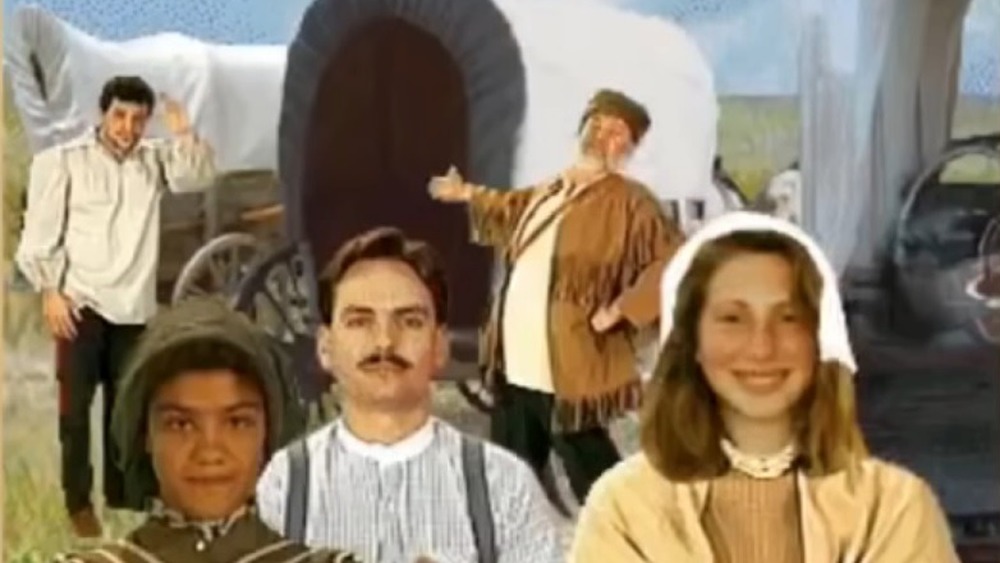The True Meaning Behind The Oregon Trail Video Game
The Oregon Trail is the seminal PC game that simulates the long, treacherous, and deadly journey many Americans took during the 1840s from Missouri for a new life on the West coast. Many people who grew up in the '90s have fond memories of booting up this game, having no clue what they were doing, and subsequently dying five minutes later due to dehydration, drowning, or dysentery.
The original Oregon Trail proved so successful that it spawned countless remakes, each with its own spin. Some were more educational, others more cinematic, but regardless of the paint job, the game almost always contains a hidden message. No, it's not "Life was much tougher when you couldn't take a plane or train to Oregon," and it certainly isn't "Aren't you glad you have modern medicine to treat cholera?" Those are all good messages, but they aren't the true meaning behind The Oregon Trail.
If you want to learn The Oregon Trail's hidden message, you have to beat the game. Or you could read this article.
Eat farm-grown plants, not the rich
As is standard with many games, The Oregon Trail has difficulty modes, but they aren't straightforward. Instead of determining the odds of drowning, the difficulty rate, indicated by profession, determines your starting funds. Bankers have the most money, while farmers have the least. The more money you have, the easier the journey — hypothetically, anyway — but the lower your final score.
Many gamers agree The Oregon Trail's difficulty and points systems are commentary on life, but the meaning varies from person to person. Some believe "bankers" live life on easy mode. The odds of random disaster are the same for everyone, but bankers — code for "rich people" — don't worry about death by starvation since they have money to stock up on supplies. You get fewer points in the game as a banker because you struggled less.
Meanwhile, other people look at current employment trends and notice a distinct lack of blue-collar workers. Everyone wants to be a banker instead of a farmer, and economies will stagnate without an influx of carpenters. Sound familiar? More points are awarded to non-bankers in The Oregon Trail because they are worth more to civilization. According to many economists, we need more farmers and fewer bankers, and The Oregon Trail's scoring system reflects this mindset.


